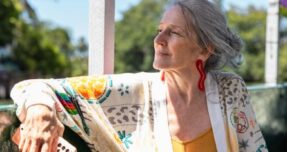At Juno, we understand that the drivers of homelessness are complex and multi-layered. Women and non-binary people can experience homelessness due to a range of issues: family violence, poverty, and gender inequality. However, the most pressing issue is a lack of affordable, safe and stable housing.
As family violence is the primary driver of homelessness for women, Juno’s Homelessness Team is trained to respond to this need and works in partnership with women and non-binary people (accompanied with or without children) to find permanent, safe and affordable homes.
This includes (but is not restricted to):
- addressing housing and support needs through short-term, task-focused support,
- longer-term case management support,
- supporting people to understand their rights,
- linking them to material/financial support,
- emotional support,
- and strengthening the safety and wellbeing of the people we’re working with through ongoing risk assessment and management.
If you or someone you know needs support, visit our Assistance Page.
How to Receive Support
Juno welcomes all women (trans and cis) and non-binary people. Self-definition is at the discretion of the individual.
If you are experiencing homelessness, to receive support from Juno or other specialist support services you must be referred via a local Homelessness Access Point. This is where an Initial Assessment and Planning (IAP) worker will assess your support needs and refer you to other services. Visit our Access Points page for a list of Homelessness Access Points across suburbs. Juno provides housing and family violence support across Hume and Merri-bek.
Read our Commitment to Accessibility →

Juno acknowledges the support of the Victorian Government.



